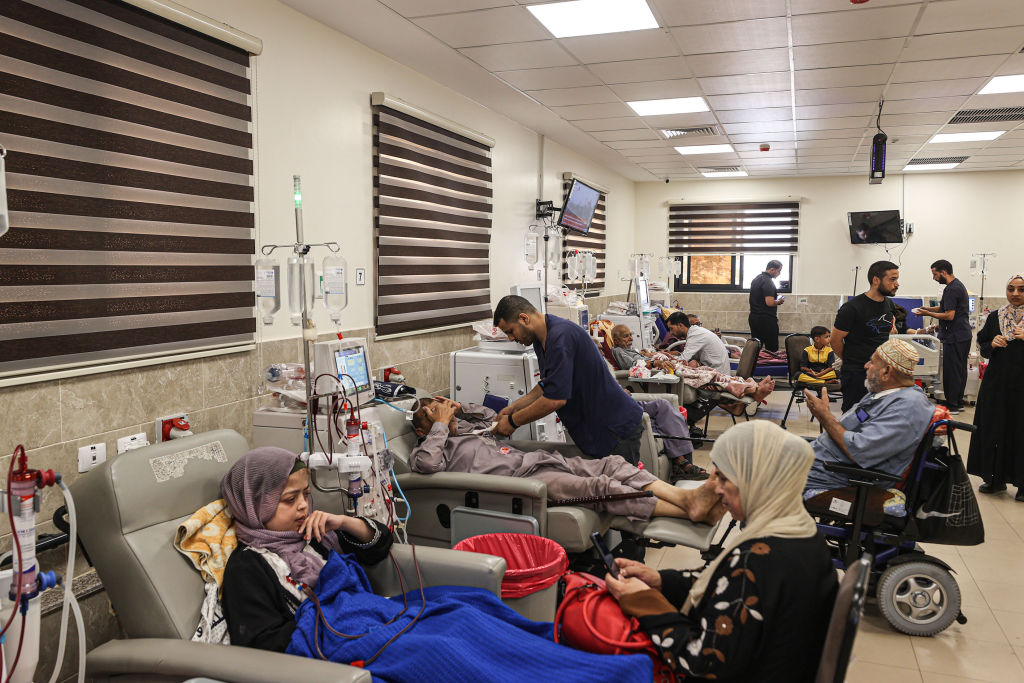The United Nation’s health agencies called for more aid to be allowed into Gaza in a report released Tuesday morning, warning that the lack of medical supplies, food and fuel in the region will only cause the region’s medical burden to grow increasingly dire.
One-third of hospitals in the Gaza Strip are now non-functional at a time when the medical burden is enormous, and some two-thirds of clinics are not functioning, according to Rick Brennan, U.N. World Health Organization’s Emergencies Director for the Eastern Mediterranean Region.
[time-brightcove not-tgx=”true”]
In an interview with Al Jazeera Tuesday, a spokesman for Gaza’s health ministry shared that the healthcare system in the region is on the brink of collapse. The ministry also said that the hospital generators would stop running in 48 hours, noting that the healthcare system had “reached the worst stage in its history.”
“We are talking about a complete collapse of the health system, which has become unable to deal with the large number of wounded arriving at hospitals, with limited capabilities to treat the wounded, in addition to the rapid depletion of fuel, which will lead to a power outage,” he said, according to NBC News. “We are only a few hours away from hospitals being out of service, and this was confirmed by international organizations familiar with the health situation in the Gaza Strip.”
Read More: As War Rages in Gaza, Violence Surges in the West Bank
Fuel, which has not been included in any of the aid convoys so far, has become the “most vital commodity” in Gaza, the U.N.’s report says. Without it, “trucks can’t move and generators can’t produce electricity for hospitals, bakeries and water desalination plants.”
Following days of diplomatic negotiations, 54 aid trucks have entered Gaza since Saturday, bringing with them a mix of food, medical supplies and non-food items. But the amount is nowhere near enough to meet the needs of Gazans in crisis. Ahead of the conflict, at least 100 aid trucks used to enter Gaza every day along with hundreds of other commercial trucks, the United Nations has said.
“The aid which resumed from Egypt over the weekend is a mere drop in the ocean of what is needed,” said Jeremy Laurence, spokesperson for the Office of the U.N. High Commissioner for Human Rights (OHCHR).
Attacks on healthcare facilities and the large scale of civilian displacement has also placed a heavy burden on the system. On October 12, the ICRC stated that “hospitals in Gaza risk turning into morgues without electricity.” WHO data from October 15 documented 48 attacks on healthcare facilities in the Gaza Strip, causing damage to some 24 hospitals and healthcare facilities, including six hospitals.
The United Nations is continuing to push for aid to enter the region unimpeded. “We are on our knees asking for sustained, scaled up, protected humanitarian operations,” said Brennan, of the U.N., speaking to reporters in Cairo. “We appeal to all those in a situation to make a decision or influence decision makers, to give us the humanitarian space to address this human catastrophe.”

